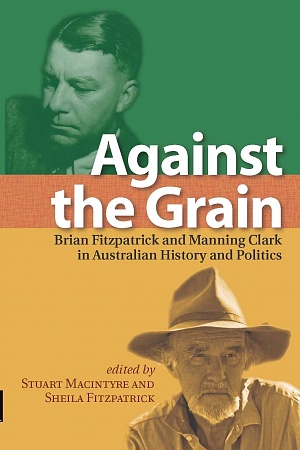The Cult of Fiction
I’ve told this story before, but perhaps I might give it one last run ... There I was at a NSW Premier’s Literary Award dinner, giving the annual address and I wanted to say, in passing, that much verse and most fiction, like most of anything else, are more likely to be products of imitation than of imagination. On the other hand, essays, history, philosophy, prose sketches, social, political and cultural analysis, popularisations of specialist scholarly stuff and all kinds of criticism can at times be more imaginative than verse or fiction – and display greater literary qualities.
The example I took was the work of Manning Clark, who was a hot topic at the time, for reasons I have forgotten. I said that when he was at his best, it was his power of imagination that made his work worth talking about, and that, again at his best, the big history he wrote showed some of the characteristics of the best kind of nineteenth-century novel. At this point the Premier’s wife hissed. She thought that ‘imagination’ meant making things up and that I was laying against Manning Clark this gravest of all professional charges – although one that, by that time, he was used to.
Continue reading for only $10 per month. Subscribe and gain full access to Australian Book Review. Already a subscriber? Sign in. If you need assistance, feel free to contact us.










Leave a comment
If you are an ABR subscriber, you will need to sign in to post a comment.
If you have forgotten your sign in details, or if you receive an error message when trying to submit your comment, please email your comment (and the name of the article to which it relates) to ABR Comments. We will review your comment and, subject to approval, we will post it under your name.
Please note that all comments must be approved by ABR and comply with our Terms & Conditions.